简体中文
繁體中文
English
Pусский
日本語
ภาษาไทย
Tiếng Việt
Bahasa Indonesia
Español
हिन्दी
Filippiiniläinen
Français
Deutsch
Português
Türkçe
한국어
العربية
What Does High-Frequency Forex Refer To?
Abstract:In Forex trading, high frequency refers to a style of trading that uses complex algorithms and high-speed computer programs to execute trades at a very rapid pace. High-frequency traders aim to profit from small price movements in the market, and they do so by placing a large number of trades in a short period of time.
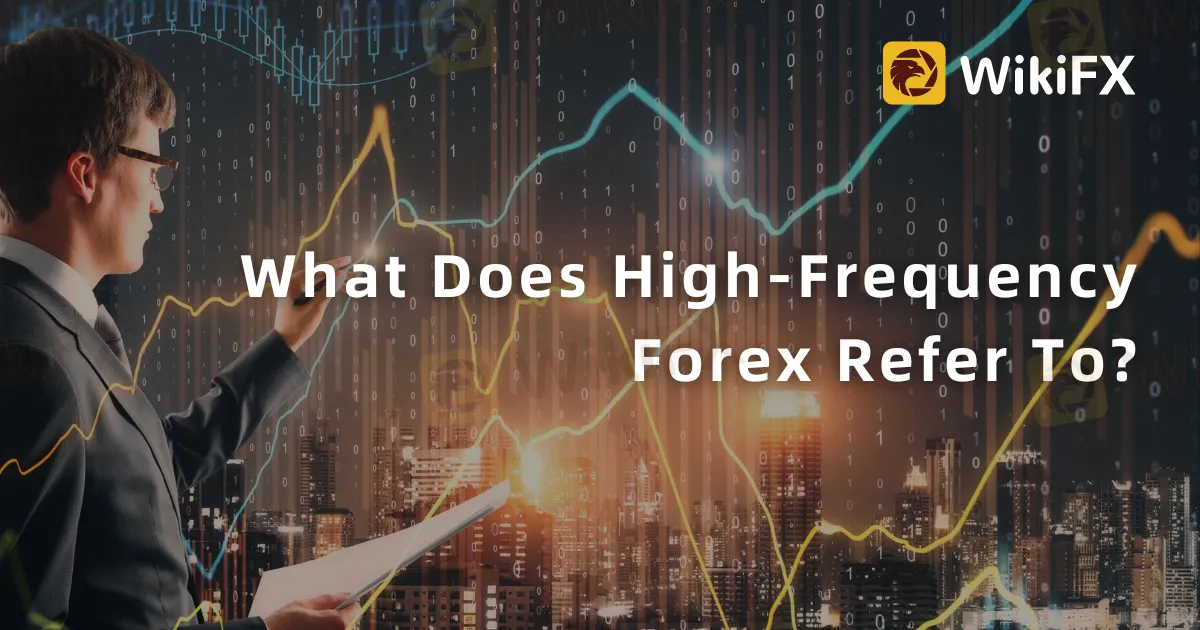
In Forex trading, high frequency refers to a style of trading that uses complex algorithms and high-speed computer programs to execute trades at a very rapid pace. High-frequency traders aim to profit from small price movements in the market, and they do so by placing a large number of trades in a short period of time.
High-frequency trading is also known as algorithmic trading or “algo” trading. It has become increasingly popular in recent years, as technological advancements have made it easier and faster to execute trades using automated systems.
Talking high-speed computer programs to execute trades. WikiFX offers a variety of VPS and EA at a low price. These two tools are considered essential to every trader who wanted to have a fast trading environment.
Check out this link: https://vps.wikifx.com/en/vps.html?source=fma3

How Does High-Frequency Forex Work?
High-frequency forex trading is typically executed using computer algorithms that are designed to identify and exploit small price movements in the market. These algorithms use a variety of indicators and statistical models to analyze market data in real time and generate trading signals.

Once a trading signal is generated, the algorithm will automatically execute a trade, typically within a fraction of a second. The trades are usually executed using specialized trading platforms and servers that are located close to the forex exchange, in order to minimize latency and ensure fast execution speeds.
High-frequency traders use a variety of different strategies to generate profits, including:
Market making: This involves placing orders on both the buy and sell side of the market, in order to create liquidity and capture the spread between the bid and ask prices.
Statistical arbitrage: This involves identifying price discrepancies between related assets and taking advantage of these discrepancies through rapid-fire trades.
Momentum trading: This involves trading based on short-term price momentum, typically using technical indicators such as moving averages and oscillators.
Increased liquidity: High-frequency traders help to increase liquidity in the forex market by providing a constant stream of buy and sell orders. This can make it easier for traders to enter and exit positions quickly, and can also help to reduce trading costs.
Faster execution speeds: High-frequency trading allows traders to execute trades at incredibly fast speeds, typically within milliseconds. This can be especially beneficial when trading in volatile market conditions, as it allows traders to take advantage of price movements before they have a chance to change direction.
Improved accuracy: High-frequency trading algorithms are designed to analyze large amounts of market data and identify profitable trading opportunities with a high degree of accuracy. This can help traders to make more informed trading decisions and increase their chances of generating profits.
Reduced emotions: High-frequency trading is largely automated, which means that traders can avoid making emotional decisions based on fear, greed, or other biases. This can help traders to remain disciplined and stick to their trading strategies, which can lead to better long-term performance.
How Can It Be Benefited To Traders
High-frequency trading can be very profitable, but it also comes with risks. Because trades are executed so quickly, there is a higher risk of errors and technical glitches. Additionally, high-frequency trading can create volatility in the market, as large numbers of trades are executed in short periods of time. This volatility can create both opportunities and risks for traders, depending on their strategies and risk tolerance.
High-frequency forex trading can offer several potential benefits to traders who use this strategy effectively, including:
Install the WikiFX App on your smartphone to stay updated on the latest news.
Download the App: https://www.wikifx.com/en/download.html?source=fma3

Disclaimer:
The views in this article only represent the author's personal views, and do not constitute investment advice on this platform. This platform does not guarantee the accuracy, completeness and timeliness of the information in the article, and will not be liable for any loss caused by the use of or reliance on the information in the article.
Read more
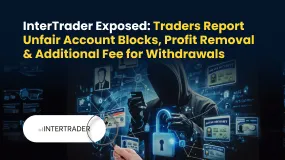
InterTrader Exposed: Traders Report Unfair Account Blocks, Profit Removal & Additional Fee for Withd
Does InterTrader block your forex trading account, giving inexplicable reasons? Does the broker flag you with latency trading and cancel all your profits? Do you have to pay additional fees for withdrawals? Did the UK-based forex broker fail to recognize the deposit you made? Does the customer service fail to address your trading queries? In this InterTrader review article, we have shared such complaints. Read them out.
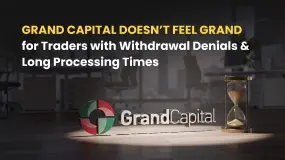
Grand Capital Doesn’t Feel GRAND for Traders with Withdrawal Denials & Long Processing Times
The trading environment does not seem that rosy for traders at Grand Capital, a Seychelles-based forex broker. Traders’ requests for withdrawals are alleged to be in the review process for months, making them frustrated and helpless. Despite meeting the guidelines, traders find it hard to withdraw funds, as suggested by their complaints online. What’s also troubling traders are long processing times concerning Grand Capital withdrawals. In this Grand Capital review segment, we have shared some complaints for you to look at. Read on!
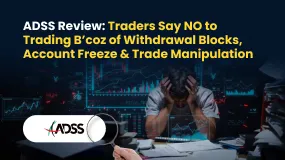
ADSS Review: Traders Say NO to Trading B’coz of Withdrawal Blocks, Account Freeze & Trade Issues
Does ADSS give you plenty of excuses to deny you access to withdrawals? Is your withdrawal request pending for months or years? Do you witness account freezes from the United Arab Emirates-based forex broker? Do you struggle to open and close your forex positions on the ADSS app? Does the customer support service fail to respond to your trading queries? All these issues have become a rage online. In this ADSS Broker review article, we have highlighted actual trader wordings on these issues. Keep reading!
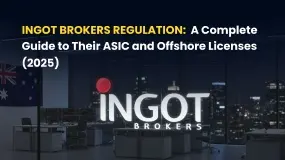
INGOT Brokers Regulation 2025: ASIC vs Offshore License - What Traders Must Know
Explore INGOT Brokers regulation in 2025: Compare their ASIC and Seychelles FSA licenses, understand trader protection levels, and learn about potential risks in this detailed guide.
WikiFX Broker
Latest News
Mitrade Arabic Platform Targets MENA Gold Trading Boom
Israeli Arrested in Rome Over €50M Forex Scam
New FCA Consumer Alert 2025: Important Warning for All Consumers
EmiraX Markets Withdrawal Issues Exposed
Consob Targets Political Deepfake “Clone Sites” and Unlicensed Platforms in Latest Enforcement Round
WikiEXPO Global Expert Interviews: Gustavo Antonio Montero: ESG in Finance
Scam Alert: GINKGO-my.com is Draining Millions from Malaysians!
The Debt-Reduction Playbook: Can Today's Governments Learn From The Past?
Polymarket Onboards First US Users Since 2022 Shutdown: Beta Relaunch Signals Major Comeback
US Seizes US15 Billion in Bitcoin as Prince Group Rejects Crypto Scam Allegations
Currency Calculator



